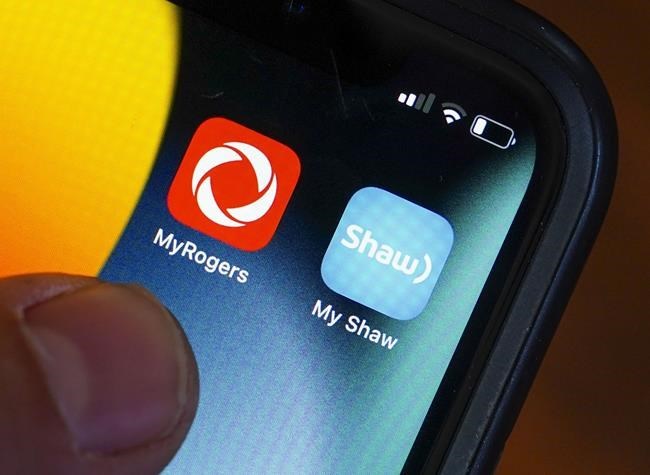A lawyer representing sa���ʴ�ý's competition watchdog says Rogers Communications Inc. and Shaw Communications Inc.'s plan to sell Freedom Mobile to Quebecor Inc.'s Videotron will put Videotron in a position of "severe vulnerability."
"The divestiture would create an unprecedented relationship of dependence between a Big Three competitor and Videotron, a much smaller, regional player and one significantly smaller than Shaw," said John Tyhurst in a virtual hearing held before the Competition Tribunal Tuesday.
Tyhurt's remarks made on behalf of the Competition Bureau were part of the final stage of arguments he will make before the Competition Tribunal's Chief Justice Paul Crampton in a hearing meant to decide whether Roger and Shaw will be granted approval for their $26-bilion merger.
One of Tyhurst's key arguments was that the potential for Videotron, which mostly operates in Quebec and some border towns in Ontario, to be dependent on Rogers' goodwill should be enough to scuttle the sale of Shaw to Rogers.
Rogers and Shaw floated the $2.85 billion sale of Freedom, a player in Ontario and Western sa���ʴ�ý, earlier this year in an attempt to ease concerns raised by the Competition Bureau.
The bureau feels a merger of Rogers and Shaw would result in increased cellphone bills and poorer service, but the two telecoms disagree, and Shaw has even said the company has no viable path forward if the agreement is not completed.
Tyhurst said the deal signed in March 2021 would be accompanied by a complex web of 13 agreements reminiscent of agreements routinely rejected by competition law because they often require future monitoring or regulation.
He argued the web would make Videotron even more vulnerable to Rogers, which Videotron has already accused Rogers of "sabotaging" its Quebec network sharing agreement. Litigation is ongoing in that case.
Tyhurst relied in part on observations from Nathan Miller, a Georgetown University professor who compiled a report opposing the deal.
"Dr. Miller's evidence was that this dependence was also likely to increase the prospect for coordination as Videotron becomes more reluctant to compete vigorously for fear of retaliation in Quebec," said Tyhurst.
The absorption of Shaw's "competitive" offerings into Rogers will also hamper the telecom industry, which will see the number of distinct networks in Western sa���ʴ�ý shrink from three to two, he said.
Fewer networks mean less competition and investment, Tyhurst said.
"This is particularly troubling given Rogers' poor track record in respect of network reliability," he said.
The comments were a reference to a July 8 service disruption Rogers incurred that saw millions of Canadians unable to reach police, paramedic and fire services with distress calls.
Rogers couldn’t transfer customers to competing carriers, despite offers of assistance from competitors Bell and Telus. It was also unable to shut down its radio access network, which would have automatically connected customers to another carrier for 911 calls.
The federal government ordered Rogers and the other telecom companies to develop a backup plan to prevent a similar disruption.
The outage came after the Competition Bureau had announced it would oppose the deal, despite it getting approval from the Canadian Radio-television and Telecommunications Commission in May.
In addition to the CRTC and Competition Bureau, the deal needs an endorsement from Industry Minister Francois-Philippe Champagne.
To nab his support, Champagne has said Videotron would have to agree to keep Freedom’s wireless licences for at least 10 years and he would “expect to see” wireless prices in Ontario and Western sa���ʴ�ý lowered by about 20 per cent, putting them in line with Videotron’s current Quebec offerings.
Quebecor has said it will accept the conditions.
This report by The Canadian Press was first published Dec. 13, 2022.
Companies in this story: (TSX:RCI, TSX:SJR)
Tara Deschamps, The Canadian Press



